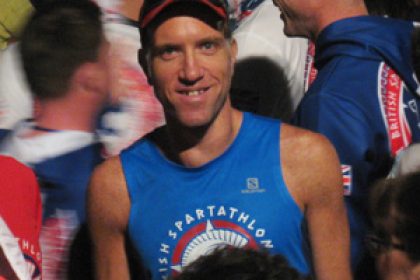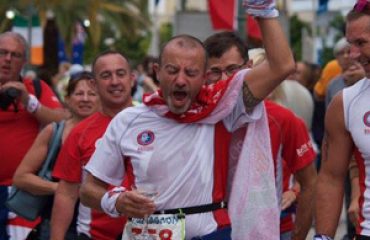
According to dictionary.com, “the moment of truth” is described as the moment at which one’s character, courage, skill, etc., is put to an extreme test. In the civilized world, it’s all about being more and more comfortable and we rarely face these moments in our regular lives. When it comes to ultrarunning, they are more common. There are critical moments in every race when you have to make a tough decision such as stopping or going on. I would argue that one of the reasons most of us do this crazy sport is to face those moments as we try to conquer our doubts and insecurities.
I can certainly say that it’s true in my case.
When it comes to Spartathlon, an iconic race that requires you to run 246 kilometers from Athens to Sparta in less than 36 hours and often under challenging weather conditions, you certainly face these moments more than a few times. You may not feel the exact same pressures like the Athenian messenger Pheidippides who was sent to Sparta in 490 BC to seek help against the Persian army but nonetheless it’s a very demanding and stressful task. I’d even say that the race as a whole may be called as the moment of truth in any given year for an ultrarunner.
Why Spartathlon? For starters, it’s the big stage. You don’t necessarily have had to run it yourself to know this. If you’ve ever talked to someone who ran the race or read someone’s report, you’ll just know that this is an epic race which is very special for almost everyone who has participated in it. For me, it’s the race that puts me to the ultimate test. Yes, the Spartathlon is tough and it’s brutal but it’s fair. It treats everyone equally, it doesn’t care who you are, where you come from or how many times you ran it before. And it certainly doesn’t care about your excuses because everyone has some and most of them are valid. It turns the spotlight on you for 36 hours straight and there’s nowhere to hide. Then, it relentlessly asks you a series of tough questions. You need to be prepared for every aspect of the race beforehand but the final outcome is decided by how you respond to those questions in each of the specific moments of truth.






